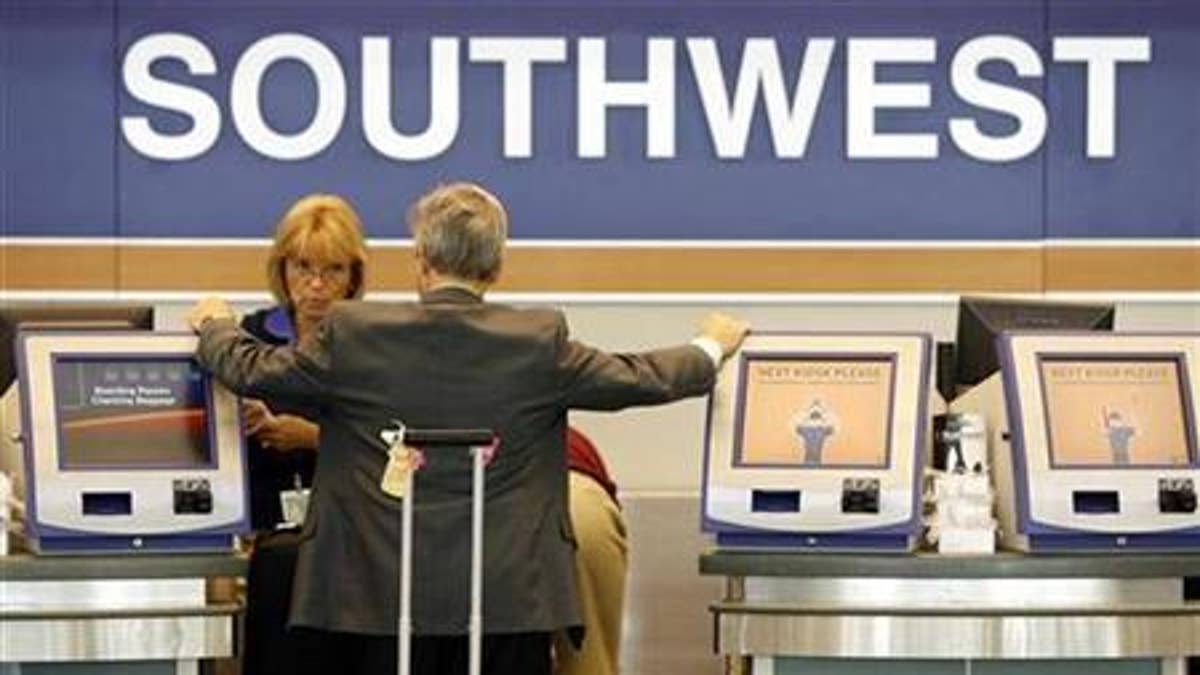
Thanks to the power of social media and user generated review websites, it is easier than ever to complain. But it might not always get you what you want. (Reuters)
If you think being a squeaky wheel is always a good thing when it comes to travel companies, you might want to think about how and when you complain.
Last week the Supreme Court heard arguments in a case involving Minnesota rabbi Binyomin Ginsberg who was kicked out of Northwest Airline’s top-level "platinum elite” WorldPerks frequent flier program.
[pullquote]
Ginsberg, by all accounts was a loyal customer, claiming that he flew Northwest even when other airlines had more convenient routes and better prices on his yearly 75 flights or so a year.
But he complained about the service a lot – 24 times in a seven month period, and nine about late luggage alone.
For its part, Northwest awarded Ginsberg $1,925 in travel credit vouchers, 78,500 bonus miles, a voucher for his son and $491 in cash reimbursements, before ultimately concluding they didn’t want his business any more.
A verdict isn’t expected until June, but the case could set a precedent for how the travel industry responds to consumer complaints.
Travel industry managers have a powerful incentive to keep even the grumpiest customers happy, or at least quiet.
But when travelers complain, what should they ask for, and do customers who complain frequently risk being ignored or even discriminated against?
Today, thanks to the power of social media and user generated review websites like Trip Advisor, travelers are empowered to publicly vent their trip complaints like never before.
According to a recent Harris Interactive poll commissioned by Expedia.com and Egencia, Millennials are some of the biggest online complainers. The survey showed that travelers between the ages of 18 to 30 are more likely to post a negative review, with 26 percent of those 34 and under saying they had posted a negative review within the last year. That compares with 14 percent of their older peers.
But there are plenty of people who still pick up the phone or lodge a complaint in person.
While many complaints are legitimate, Brent Jenson, a 25-year veteran travel agent at Morris Murdock Travel in Utah, says that some people just love to vent their frustrations --however ludicrous. “A lot of people will travel outside the U.S. and expect it to be just like at home. Like, ‘the buffet breakfast at our hotel in France didn’t have any American food.’ Well, duh, you’re in France, it’s different.”
Whatever the problem, Jenson says that travelers will get the best results if they make their complaint in a courteous way, without specific demands. “When someone demands something specific that turns me off,” he said. “It makes me feel like they might just be looking for something for nothing.”
Matt Kepnes, a frequent traveler who blogs about his experiences and gives travel tips on his site, Nomadic Matt, says the opposite approach works for him.
“You should always ask for something specific,” he said. “Give them a few options, but be very nice. Tell them you understand bad things can happen, but you wanted to let them know about this situation, and tell them how they can make it up to you by doing x, y or z.”
But Kepnes says he holds large travel companies to a higher standard and is less likely to complain about service at a bed and breakfast or small tour company.
“I am more forgiving with small mom and pop operations because they’re probably short staffed and under a lot of pressure,” he said. “With the bigger corporations, you try to give them the benefit of the doubt, but if it’s a pattern, or an egregious offense, I’ll complain.”
Travelers who are members of airline, hotel, cruise and even tour group loyalty clubs might get more compensation because companies tend to want to keep their most loyal customers happy.
Carolyn Spencer Brown, the editor of Cruise Critic and Independent Traveler, says that companies look at trends to determine how seriously to take the complaint.
“If several people are complaining about the same thing, then I think they’ll take it more seriously,” she said. “How they respond is what counts. Done right, companies can take a negative situation and turn it into a positive that creates a lifelong customer.”
Yet, travel industry managers walk a fine line in providing compensation to dissatisfied customers. They want to resolve disputes before unhappy travelers take to social media or Trip Advisor, but they don’t want to create incentives for future complaints.
Jenson says warns that companies are increasingly tracking complaints and will turn a deaf ear to serial complainers.
“Some companies track complaints, and if you call in too frequently they’ll notice,” he said. “If I call Delta 15 times in a week, they’ll say, ‘Oh, it’s Brent Jenson calling in again.’ They’ll tell me, ‘We already helped you with a name change and told you it was a one-time scenario,’ and I’ll have to say, ‘Yeah, you’re right.’”
In the wake of the Ginsberg Supreme Court case, should travelers worry that if they complain too much they might get kicked out of loyalty clubs or suffer second-class treatment?
Kepnes, Spencer and Jenson don’t think so, but Jenson cautions would-be complainers to be judicious and diplomatic.
“Please don’t be that guy who is just looking to get something for free,” he said.








































